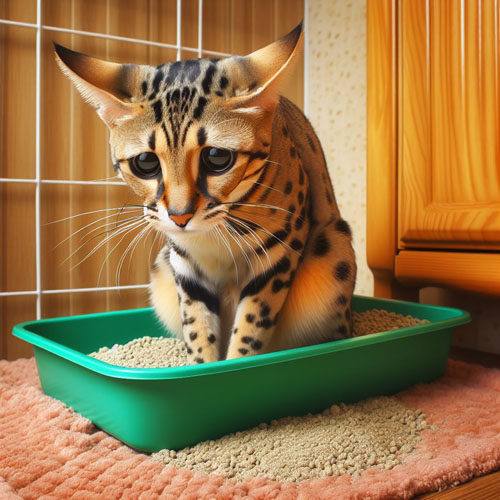Respiratory Infections in Savannah Cats
Understanding and Managing Upper Respiratory Infections in Savannah Cats
Savannah cats, known for their striking appearance and unique breed history, can be susceptible to various health issues, including upper respiratory infections (URIs). These infections, commonly caused by viruses or bacteria, can pose a challenge to the well-being of these exotic feline companions. In this article, we will explore the causes, symptoms, prevention, and treatment of upper respiratory infections in Savannah cats.
Causes of Upper Respiratory Infections in Savannah Cats
- Viruses: Feline herpesvirus (FHV) and feline calicivirus (FCV) are the primary viral culprits behind upper respiratory infections in cats. These viruses are highly contagious and often spread through contact with infected cats or contaminated environments.
- Bacteria: Bordetella bronchiseptica and Chlamydophila felis are common bacterial agents that can contribute to respiratory infections. These bacteria often coexist with viral infections, complicating the clinical picture.
- Stress: Stress can weaken a cat’s immune system, making them more susceptible to infections. Changes in environment, introduction to new pets, or even a visit to the veterinarian can induce stress in Savannah cats.
Recognizing the signs and symptoms of an respiratory infection in Savannah cats is crucial for early intervention. Common symptoms include:
- Sneezing and Coughing: Frequent sneezing and coughing are indicative of irritation in the respiratory tract.
- Nasal Discharge: Discharge from the nose, ranging from clear to thick and colored, is a common symptom.
- Watery Eyes: Excessive tearing or discharge from the eyes may be present.
- Lethargy: Cats with URIs often exhibit a decrease in activity and playfulness.
- Loss of Appetite: Respiratory infections can affect a cat’s sense of smell, leading to a diminished appetite.
Preventing upper respiratory infections in Savannah cats involves a combination of vaccination, hygiene, and stress management:
- Vaccination: Regular vaccinations, including those for FHV and FCV, are essential for preventing respiratory infections. Consult with your veterinarian to establish an appropriate vaccination schedule.
- Hygiene Practices: Maintain a clean living environment for your Savannah cat. Regularly clean litter boxes, food and water bowls, and bedding to reduce the risk of bacterial contamination.
- Isolation: If you introduce a new cat into your household, consider isolating them from existing cats initially. This helps prevent the spread of infectious agents.
- Stress Reduction: Minimize stressors in your cat’s environment. Provide a secure and quiet space, especially during events that may induce stress.
When a Savannah cat is diagnosed with an upper respiratory infection, prompt and appropriate treatment is crucial. There are several treatment options:
- Antibiotics: Bacterial infections may require antibiotic treatment. Your veterinarian will prescribe the appropriate antibiotics based on the specific bacteria causing the infection.
- Antiviral Medications: For viral infections, antiviral medications may be recommended. These medications aim to manage symptoms and reduce the severity and duration of the infection.
- Supportive Care: Provide supportive care, including a comfortable and quiet environment, nutritious food, and proper hydration. Humidifiers can also ease respiratory discomfort.
- Veterinary Monitoring: Regular check-ups with your veterinarian are essential to monitor the progress of treatment and address any complications that may arise.
Upper respiratory infections in Savannah cats can be challenging, but with early detection, proper veterinary care, and preventive measures, these feline companions can recover and lead healthy lives. As a responsible cat owner, staying informed about potential health risks and being proactive in your cat’s healthcare will contribute to their overall well-being and happiness.





